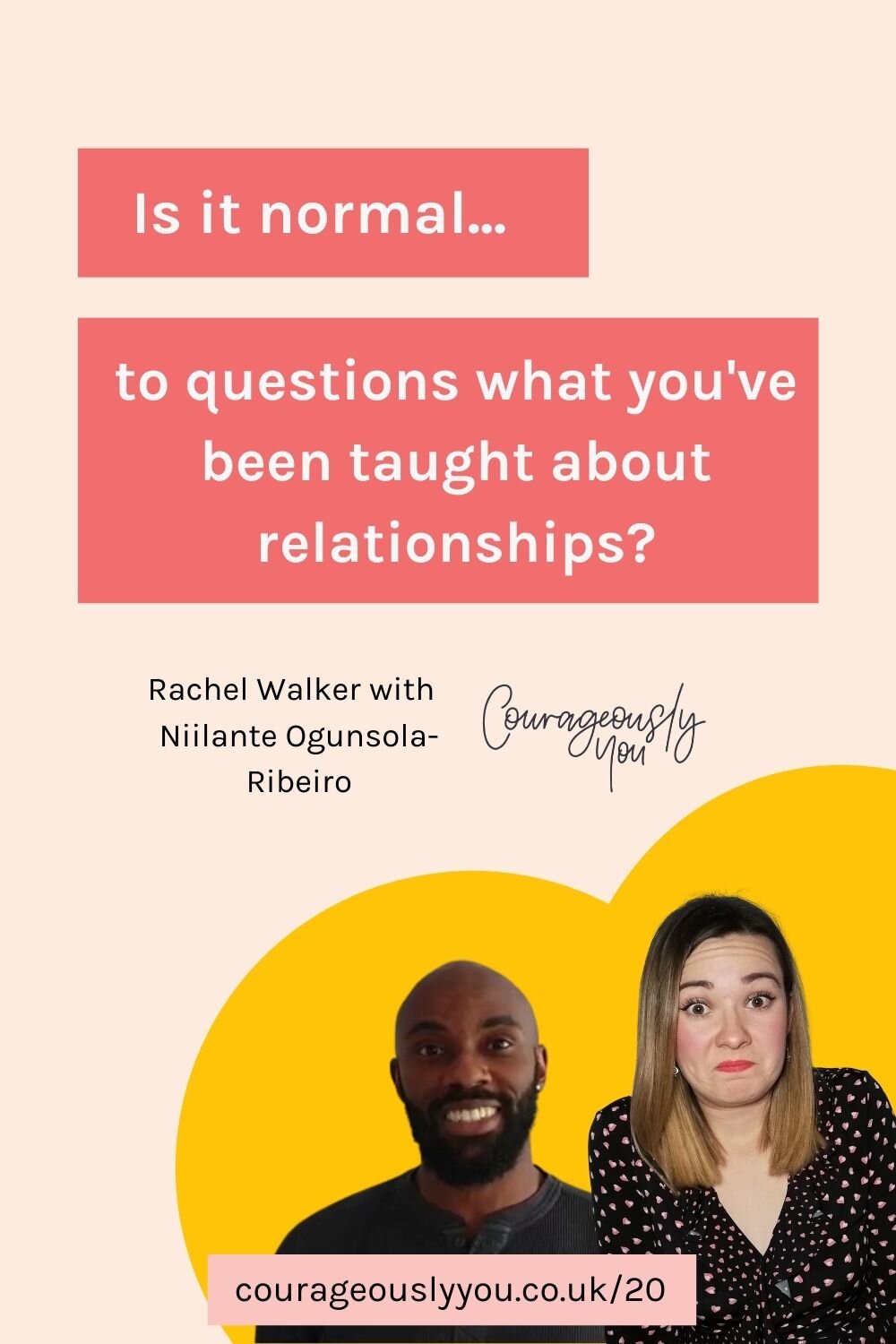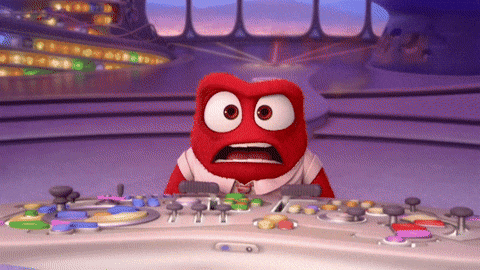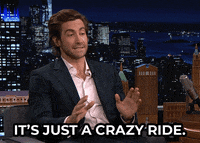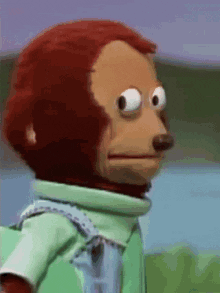Is it Normal To Question What You've Been Taught About Relationships?
Have you ever felt something not quite right about a relationship, but aren’t sure what it is? Maybe you feel attracted to someone else, or you struggle to be happy when committed to one person – even though you know that’s what a ‘healthy relationship’ is supposed to look like? Today, I’m going to dive into what that means, and why you might not be all that wrong.
And this one is very exciting because it’s the first conversation I’ve had on the podcast where there is a book to reference! I’ve always said I wanted to be able to really digest and unpick a book about relationships in my podcast and on my blog, but no one had really read the same books as me. Well, Niilante decided to prove me wrong, and read ‘Sex at Dawn’ so that we could talk all about it!
What we’ll cover:
Introducing a new perspective on relationships
Society vs Biology
Why Darwin might be (sort of) wrong
The role of community in raising children
The Monogamy Cage - is Monogamy a falsehood?
Prefer to listen? Head to the podcast here.
Sex At Dawn
‘Sex At Dawn: How We Mate, Why We Stray, And What It Means For Modern Relationships’ (to give it its proper title) is by Christopher Ryan and Cacilda Jetha, and it truly is a riveting read. For Niilante, it was reading related to his bachelors in behavioural science, as well as being an element of behavioural psychology that fascinates him. He’s the kind of person who likes to know why people behave the way they do, and what those natural impulses mean – which is why he’s a perfect guest for me to discuss this with!
And for me, this book gave me a chance to really dive into the concept of monogamy, and cheating - why something that’s considered by society as so wrong and so heart-breaking to go through is also so common. So in today’s blog, we’re going to pick apart this book together, and bring you along for the ride. So, let’s do some questioning, and find out if what we’ve been taught about relationships is actually right for us.
Putting Things in Perspective
One of the things I really enjoyed about this book is how easily it put everything into perspective. Not just about human behaviour, but specifically about relationships, why we act the way we do, what impulses there are behind those choices, and how we can contextualise them. I think for a lot of people, a relationship is supposed to ‘go’ a certain way, in their head at least. And when their relationship strays from that pattern, our immediate thought is that it must be because I’ve done something wrong, or there is something wrong with me. So if you feel something that you think is ‘wrong’, it can cause an internal conflict that’s very hard to move past.
“By questioning the nature of our relationships, can we find new ways to understand each other?”
So this book isn’t saying ‘this is right and this is wrong’. Instead, it’s almost saying ‘hey, maybe it would be helpful to question some of the things you’ve been taught or told about relationships, and to understand where they come from a bit better’. When you can do that, then contextualise it within your own monogamous relationship, or within your own context if you don’t practice monogamy yourself. Niilante had an excellent way of putting it:
‘I think a lot of people look at you reading this kind of book and think ‘are you planning to do this?’. When in reality, it’s more of a case of trying to understand. Is it really possible that we as humans have the whole idea of how our relationships are supposed to work? Or are we only looking at it from one perspective, that could potentially be counter to our actual nature? Or by examining the framework that we’ve structured everything on, could we come across new ways of understanding ourselves and other people?’
Society vs Biology
One of the core themes in ‘Sex at Dawn’ is unpicking what about our relationships and sexual behaviour is biological to our species, vs what is socially constructed? And whether that difference actually matters or not? A friend of mine once said it didn’t matter which it was, because this is the way we are now. But actually the book argues that most of the behaviour around relationships and intimacy we engage in now is almost entirely socially constructed, and a lot of it conflicts with that ingrained biological impulse. And so we get this inner conflict, because in a lot of ways we’re going against what’s natural, versus what we think we should do.
Niilante explains it like this:
‘It’s like you can feel yourself bumping into bars as you navigate through relationships. And people are telling you that these bars aren’t there – but you can feel them. So you say, ‘hey, I’m in a cage.’ And they say ‘no, you’re not in a cage, this is all totally normal.’
But there’s something missing from the picture. In many ways that’s the biggest thing I took from the book – that society is bigger and more powerful than our nature. Social evolution has happened alongside biological evolution, and now they almost have the same purchasing power. So in many ways, we aren’t driven just by our biology anymore, and how our society evolves has just as much impact on how we behave. And actually, that societal view also has a big impact on the research we do, and the lens we look at things through when we try to learn more about ourselves. For example, when we research and try to interpret the behaviour of the hunter gatherer foraging societies, we’re interpreting that behaviour through the lens of what we know now.’
And that, I think, is a really interesting thought. How much of what we do know, or what we think is the ‘right’ way to approach relationships, is because of what we’re taught by society, instead of what is natural for our species?
I went on to explain:
‘One of the things that absolutely blew my mind from this book was the concept of paternity certainty. I remember doing evolutionary psychology as part of my degree, and we were taught that there is an evolutionary theory about men having the alpha male dominance traits because it’s important for them to be certain that it’s them impregnating the female.
But that assumes that our primitive ancestors understood how sperm and eggs work – which of course they had absolutely no way of knowing. We’ve made that assumption based on our own social constructions. And when a baby was born, that baby was assumed to have multiple fathers, and that’s why the village would raise the children as a community. We’ve been looking at all of this through the lens of society, not of biology, all along.’
The book certainly goes into this in a lot of detail, to lay down this foundation that a lot of what we know about relationships, sex and intimacy, is actually part of societal construction, and goes against what our biology tells us.
Why Darwin Might Be (Sort of) Wrong
When we’re talking about evolution, we can’t skip over Mr Charles Darwin. After all, he’s the one who came up with the whole theory of evolution, and he’s the reason we realised we’re evolved from Chimps, right? But there are also some really interesting points around Darwinism in this book, like the fact that history and science aren’t all that aligned around evolution.
Specifically, that we’re taught we are directly descended from chimpanzees, when actually in terms of genetics, we are much more similar to the Bonobos, who share around 98.7% of our DNA! Studying their behaviour reveals that it’s completely different to humans in many cases, but very similar in others. For example, the Bonobos will use sex not just for reproduction, but to fulfil other needs as well.
Add onto that the fact that Darwin, for all his great work, was a Victorian era man, and so the idea of the sexuality of women wasn’t ever going to be on his radar, or brought to his attention.
And so that has shaped the way we think about relationships. So I wanted to ask you this: if Darwin had been born in 2021, would we still have the same views about evolution, sex, gender and relationships? How much of the way we behave (or think we should behave) is about society and our environment, rather than our true nature?
The Different Faces of Community
If we follow on from that thought, that our society impacts the way we behave more than we realise, then what else does it affect? Niilante suggests that our societal views also have a big impact on our view of community – and that’s something you can see across different cultures.
‘Growing up in the black community, a lot of my friends had absent fathers. Not all of them – there were some amazing and very present black fathers within my friend group (mine included), but there were some who just weren’t there. But in that culture there are a lot of strong female characters that raise the children, supported by a strong community of like-minded women. And when you look at other cultures, like in Jamaica, you have a strong community of mother, grandmother etc – all strong characters that pull together and look after the kids. You can see the way certain structures have evolved in different ways. So when we view a different culture through our own lens, we might think ‘oh they’re doing it wrong’, when actually there are some really good things there. Like, maybe it’s a good thing to have a culture rooted in a community to raise a child together, rather than the pressure being placed on 2 people to be responsible for everything that one child is and does. And maybe it’s not wrong, it’s just different.’
The point Niilante makes about community makes me think of another made in the book, and that’s how the shift from hunter gatherer to agriculture fundamentally switched our view on relationships. As we developed, things became less about community and more about the self – I am settling on this land, I am drawing a boundary around what is mine. And that, at least in my opinion, is how this whole ‘monogamy is right’ movement started.
We became a little more selfish as a species, trying to protect what was ‘ours’ – which included partners and children. We were afraid of people taking things from us, and we didn’t want to share things. That I think (and Niilante agrees) is the core of how monogamy became the social norm. And it went beyond that once economics came into play, and society became a zero-sum game. No one person could have more than anyone else – and so we decided that monogamy with one partner was the right and ‘fair’ thing to do. To the point that we actually put barriers in the way of anyone who wanted to ‘go against the grain’ and be in a non-monogamous relationship, from the legal issues around things like polyamory, right down to who childcare and medical care are structured and provided. And I’ve got to wonder, what will this all look like in 100 years?
The Monogamy Cage
If that whole thing isn’t enough to make you question what you’ve been taught about relationships, then you really need to read the book! Because the main message of the whole book is that it’s built into our genetic makeup and biology not to be monogamous, and a lot of the recent and public struggles many are having with their desires, their gender and how they are happy in relationships are borne from that.
Society has spent thousands of years building the monogamy cage around us, and now many of us are struggling to live happily within it. And at what point in our society did we decide that we weren’t part of nature, but above it, and should behave differently? Maybe behaving a bit more naturally is exactly what we need to do to be happy.
So, is it normal to question what you’ve been taught about relationships?
Well, society doesn’t seem to want us to, but that doesn’t mean we shouldn’t! Society isn’t in sync with our biological drivers, and the fact is a lot of what we think about relationships has been influenced by the structures around us, rather than what will make us happy on a fundamental level. So even if you’ve never done it before – go out and question it! And ask yourself, does it make sense for you? If nothing else, you’ll walk away with a better understanding of what motivates you, and what motivates your partners as well.
If you like what you’ve heard about ‘Sex At Dawn: How We Mate, Why We Stray, And What It Means For Modern Relationships’ and want to read it for yourself, then check it out here. And as always, if you’re more of an audio person, you can listen to my conversation with Niilante over on my podcast.
















I help late diagnosed ADHD folk make career and life decisions they trust. ICF Certified Coach, Youtuber & Writer.